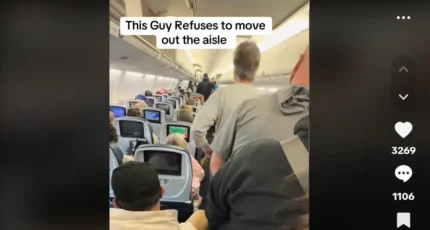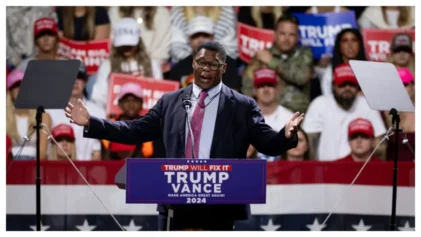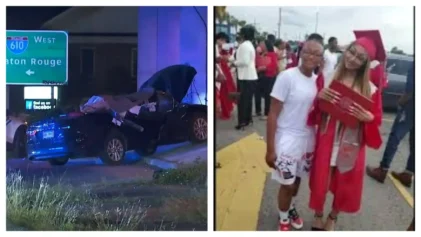A Texas man has filed a federal lawsuit alleging that he was fired for complaining about his co-worker’s racist behavior.
Christoper Vickers’ supervisor at Bison Speciality Services openly made jokes about Black people and bragged about being affiliated with a white supremacist gang. When Vickers complained to his superiors, the company fired him, a lawsuit obtained by The Atlanta Black Star alleges.
Vickers’ attorneys said what his employer did was retaliation after violating his civil rights by making him stay in a hostile and discriminatory environment, where his supervisor would fling around racist slurs.
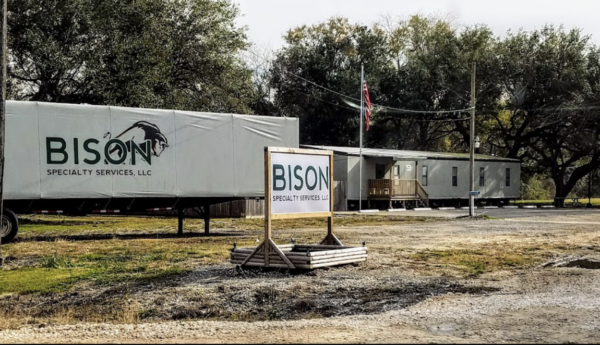
“It’s the environment that he had to walk into every day in order to earn a living,” said Rochelle Owens, one of the lawyers representing Vickers in the case.
“I don’t think that there’s anyone in the United States or anywhere that would appreciate having to realize that your race is the reason why you’re being treated in a certain manner, and it’s going to continue as long as those employees are there.”
During the two-and-a-half years Vickers worked at the industrial maintenance company in Beaumont, Texas, he was supervised by a man who reportedly boasted about having friends in the Aryan Brotherhood gang, the lawsuit alleges.
The Aryan Brotherhood is the oldest and most notorious racist prison gang in the nation, according to the Anti-Defamation League.
Albert Leblanc often described Black people as “lazy blue gum n-words” and sent racist texts in group messages with other employees, the lawsuit reads. He also had called Black employees at Bison Speciality the N-word, the complaints says.
In one instance, LeBlanc sent a video of a Black man dancing on the freeway to a song with the lyrics, “Go back to Africa,” the lawsuit alleges.
LeBlanc also allegedly sent a video where one of two Black men turned white and told the other man,” Naw, N-word, go get a job!”
Months after the May 2020 police killing of George Floyd, LeBlanc reportedly sent a group message with a photo of a Black man captured in a mousetrap. A large bucket of Kentucky Fried Chicken was placed on the trap as bait.
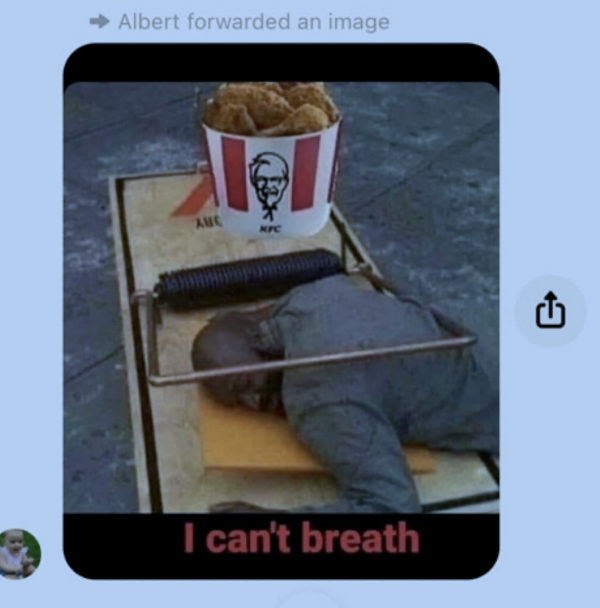
The photo had the caption, “I can’t breath.” The words “I can’t breathe” were some of the final words of Floyd in the heavily publicized case. The phrase also has been the final plea of other Black men killed in police custody, including Eric Garner and Manuel Ellis.
The lawsuit also alleges that the company allowed white employees to park in the front of the building and carry firearms, but not Black employees.
Vickers complained to human resources and the general foreman, Josh Hall, and company president Chad Luhan also received Vickers’ complaints about the discrimination.
“Mr. Hall’s response was that he understood that Mr. Leblanc’s racist behavior was an issue but that he could not do anything about him,” Vickers’ attorney wrote.
The lawsuit alleges that when Vickers and his family contracted COVID-19 in March 2021, Luhan told him he had to come to work despite the Centers for Disease Control and Prevention isolation protocols. His attorneys claim the company used the opportunity to fire Vickers. He was terminated right after his last complaint, they said.
“While Mr. Vickers and his family were recovering from COVID-19 and following his complaints of racial discrimination and hostile work environment, Bison Specialty terminated him,” the lawsuit alleges.
The company did not respond to multiple requests for comment from Atlanta Black Star.
Vickers is suing Bison Speciality for back pay, front pay, damages, emotional pain, suffering, inconvenience, mental anguish, loss of enjoyment of life and fringe benefits, along with other losses.
Vickers, who’s married with two children, recently started a new job, where Owens said he makes less income. She said it’s “tough” for Vickers and his family.
“He would have loved to be able to stay and make the kind of money that he was making, but unfortunately, these things happen when there’s the opposing side that behaves in that manner and treats you in that way, and they retaliate against you.”
The lawsuit is an example of the harsh reality some Black people face in America, Owens pointed out.
“People do not appreciate the fact that people of color have to put an extra suit of armor on when they walk outside and when they go to work because it is certainly a game-changer when you walk in the door versus when you’re at home or when you’re with your family and friends and people that care about you,” she said.
“It’s different when you walk outside, and you have to have that extra suit of armor on to protect yourself, even if it’s nothing more than to simply ignore.”
